There are many good reasons why we may end up in a survival situation, but putting ourselves there intentionally is pretty far down on the list.
These days, those who do it intentionally often end up with their own extreme reality show. Others end up as an example of survival stories gone bad.
Chris McCandless fall into this category. Here’s his story.
At the end of April, 1992, Chris, AKA Alexander Supertramp, left Fairbanks, AK and ventured into the Alaskan outback, determined to kill the “false being within.” He survived on a meager diet of scavenged roots, nuts, berries, small game, and mushrooms.
He’d also taken a 10-pound bag of rice with him. He lived for 113 days before dying on about August 18th.
His body was found inside his sleeping bag by a moose hunter who had stopped at the old bus that he had been using for shelter.
There was a note pinned to the door begging any visitor to wait for him because he was injured, weak, and starving. He was so far gone that he hadn’t even taken the note off the door when he returned.
Now, that may sound like a terribly tragic story to you, and it most certainly is, but Chris’s adventure and death is a controversial topic.
Video first seen on carinemccandless.
Some consider him an arrogant, entitled kid who died because of that arrogance and failure to prepare. Others think that he was somebody to admire who fell victim to the tides of misfortune, and yet others think that he was a mentally ill young man who went into a situation and died because of that mental incapacity.
Like everybody, I have an opinion. I believe that it’s a combination of the three. He was certainly not lacking in the clarity or mental capacity to set forth on his adventure, though it turns out that he was educated but misinformed.
From most accounts, he was also at least a little arrogant and likely overconfident in his abilities. Misfortune also played a part. But mostly, in my opinion, it was lack of preparation and experience.
3 Second SEAL Test Will Tell You If You’ll Survive A SHTF Situation
Anytime you combine arrogance, ignorance, and bad luck, disaster of some type is bound to happen eventually. Even the most humble, skilled, and lucky of us experience misfortune sometimes, and they combined to equal the perfect storm for Chris. It cost him his life.
But … what can we take away from his experience?
Don’t Underestimate the Danger
First and foremost, perhaps his biggest folly was underestimating the danger of what he was doing. Living solely off the land isn’t just a matter of taking a walk, shooting a rabbit or two, and gathering a bushel of berries and edible plants along the way.
Some of those animals may just want to eat you back once the sun sets, and the edible plants, as he learned, aren’t always so edible.
Hard-core wilderness survival at the level he undertook is the epitome of the word survival. The only thing that could have possibly made it more difficult would have been if he were being hunted, barring nuclear fallout and other apocalyptic scenarios.
Don’t let the romance, for lack of a better word, of surviving on your own in the wilderness, being one with nature, and “finding yourself” blind you to the incredibly real dangers of surviving only your own competence and on what’s available to you.
Don’t Overestimate Your Skills
This goes hand-in-hand with underestimating the danger, and both of them can be chalked up to the arrogance factor. This reminds me, on a much more deadly level, of the kid who wants to build his own treehouse. It seems easy, but the reality is a whole different beast than the idea.
You don’t just decide one day, “Hey, I’ve been hiking and have experienced some pretty harsh camping conditions. I think I’ll wonder into the Alaskan bush for an underdetermined amount of time.”
He may have read up on what he would face but this sort of thing isn’t exactly something that you jump into without shorter trips and much more preparation. He was a traveler but had no experience remotely similar to this.
Plus, the fact that he was living on such a limited diet and at such a calorie deficit for so long indicates that he wasn’t prepared. Pictures that he took show that he became gaunt even before he was apparently feeling much of the effects of the poison that eventually killed him.
He was obviously not eating enough calories and was existing on a diet that had very little variance. The same mushrooms, wild potato roots and seeds, and whatever protein he caught surely didn’t provide his body with the wide range of vitamins, nutrients, and fatty acids that it needed to thrive.
In short, he walked in thinking that he could just live off the land, and he couldn’t. Even had he survived, he would have likely been malnourished when he did emerge.
Don’t Ignore Your Body
Your body knows what it needs and it diverts energy from non-critical places on your body to critical ones. In other words, if you’re not eating enough calories, your body will steal it from other parts of your body to keep your vital organs functioning. First it burns sugar, then it burns fat, then it burns muscle.
He was to the point of emaciation – he went in weighing 140 pounds and his remains weighed just 66 pounds with no discernable subcutaneous fat – before he died. He didn’t get that way overnight, nor did he become sick and weak overnight.
The toxin in the wild potato roots and seeds that has now been determined to have led to his demise doesn’t just kill you on the spot. It’s a neurotoxin that acts slowly, so he would have been feeling the effects for days or even weeks – plenty of time to hike to the highway to get help. But he ignored his body.
Prepare for Every Contingency
We all know that this point has an inherent flaw: there’s no way to KNOW every contingency, so there’s no way to prepare for every one of them. What a reasonable, experienced person would do before attempting such an extreme idea is plan and prepare.
They’d play the what-if game. What if I can’t find game? Maybe I should have some back-up MREs. What if I get hurt? Maybe I should have an emergency means to communicate. What if my lighter or matches get wet? I need an alternate method of building a fire. What if, what if, what if.
In his case, he was woefully unprepared for wilderness survival. According to his notes, he attempted to head back to civilization in July, but couldn’t because his path was blocked because the Teklanika River was swollen at the place where he’d crossed in April.
Had he done his research and had a topographical map, he would have known that there was a hand-operated tramway that crossed the river not even a mile away from his original crossing spot.
Have a Backup Plan and Fail-safes
There’s an old saying credited to a German field marshal that says that no plan survives first contact with the enemy. It’s a good saying. That’s why experienced soldiers and outdoorsmen always have a backup plan and fail-safes.
Any experienced hiker or outdoorsman (heck, any Boy Scout) will tell you that it’s just part of the planning process to include information such as your path, your destination, and how long you expect to be gone in a plan that you share with at least one other person. That way, if you don’t show back up or make contact, they know to send somebody after you.
An emergency radio wouldn’t have been a bad thing. Nor would maps, a working knowledge of how to preserve meat (he killed a moose but most of the meat went bad because he didn’t preserve it properly), and just basically used a little bit of common sense. Maybe this is where mentally ill part comes in. Either that, or supreme arrogance.
The one part of his demise that he can’t be blamed for, much, is the fact that the wild potato seeds that made up a majority of his diet were listed as safe to eat in the book he wrote his diary in. It took a couple of decades for it to be determined that the seeds contain a neurotoxic amino acid commonly known as ODAP.
Of course, had he been eating a wide variety of foods and been properly nourished, the toxins likely wouldn’t have affected him.
So, it’s easy to look at Chris’s experience and, if nothing else, learn from it. The real reason that he set off on the trip will never be known, but in the scheme of things, it doesn’t really matter. What matters is that he wasn’t prepared and he died because of it.
Would you do any of the mistakes he did?
Do you have anything to add? If so, please feel free to comment in the section below.
This article has been written by Theresa Crouse for Survivopedia.


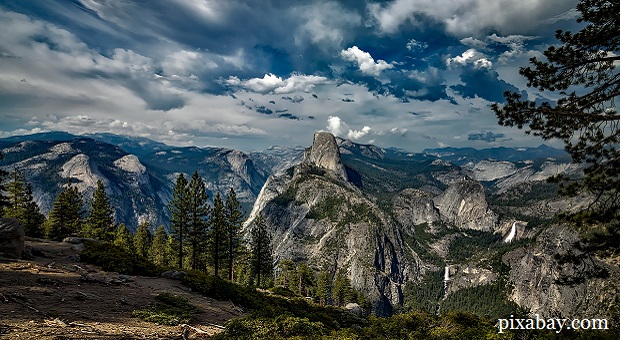

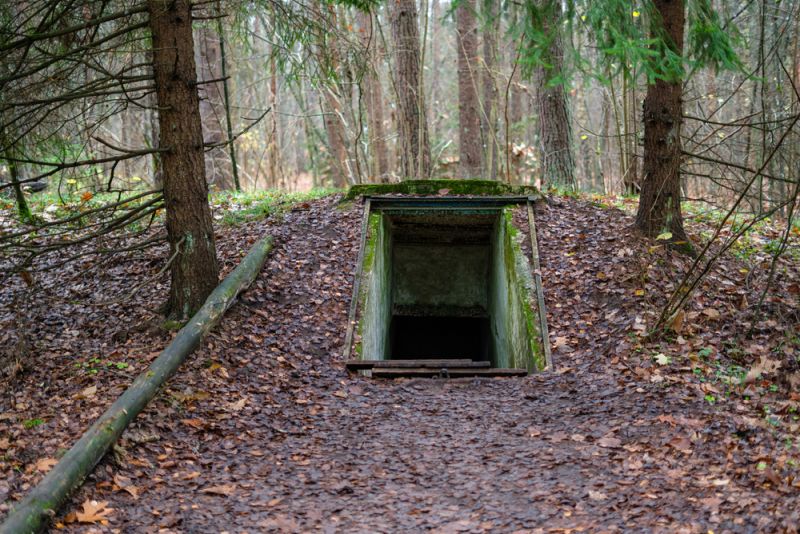
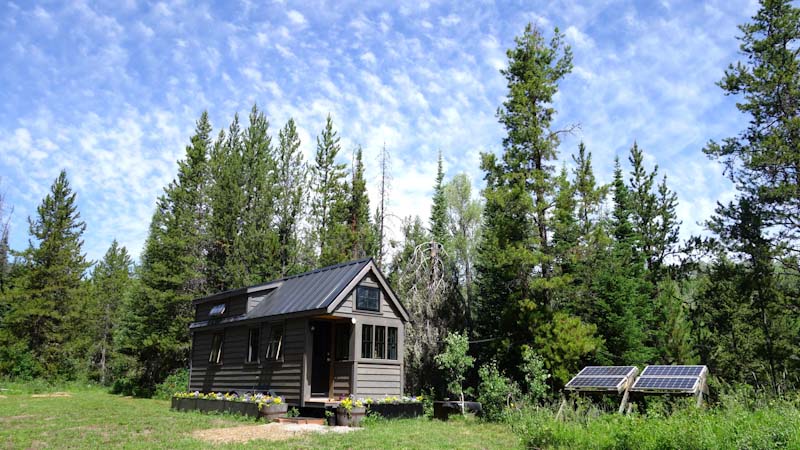
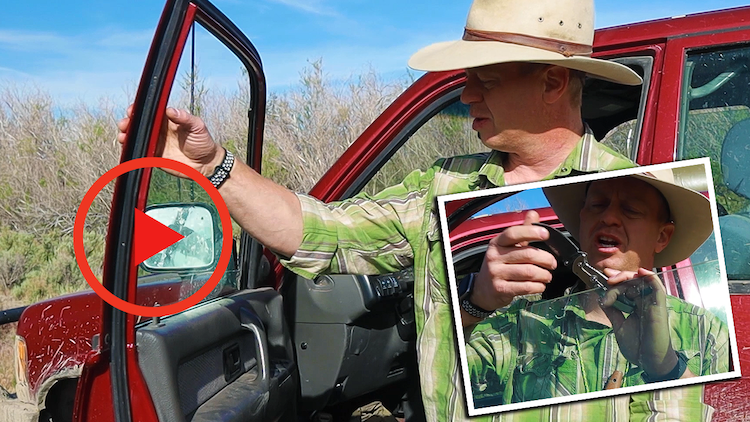
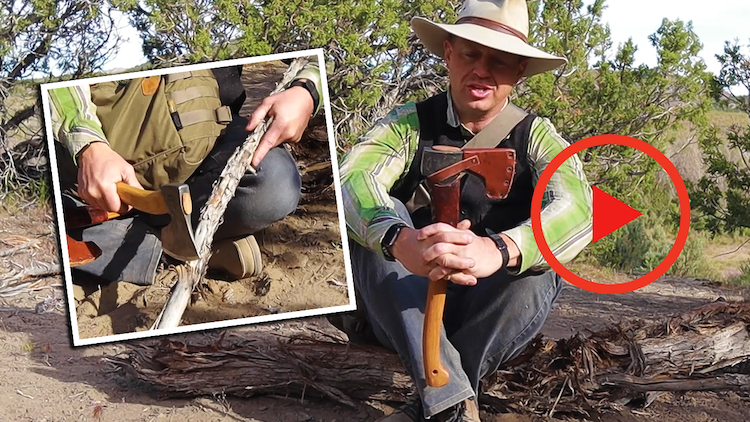


Bill in Idaho | September 15, 2017
|
Hello, Theresa. I Never comment on Idiots – of any age or gender.
Jean-Michel GARRIDO-PASTOR | September 15, 2017
|
Bonjour theresa
N’ETANT PAS BOTANISTE JE SUIS OBLIGE DE M’APPUYER SUR UN DOCUMENT, UN LIVRE… sI LE LIVRE M’INDUIT EN ERREUR… DONC EFFECTIVEMENT ON PEUT SE RETROUVER DANS DES CIRCONSTANCES IMPREVUES. dE MEME LES CARTES PEUVENT ETRE ERRONEES, LES PARCOURS AYANT EVOLUES. EN FRANCE ON EST PAS DANS DES COINS VRAIMENT DANGEREUX SAUF SI L’ON FAIT DE LA HAUTE MONTAGNE MAIS CE N’EST PAS MON CAS ET CHACUN DOIT PRENDRE SES RESPONSABILITES
Don Wright | September 15, 2017
|
I watched a movie related to this incident. I remember commenting to my wife about his poor planning, no backup plan … poorly thought out communications planning etc. I spent a long time in the army- acquiring many skills and solid grounding in self confidence, learned to hunt and fish at an early age and actually experimented with “edible” wild plants etc. while a graduate student in Archeology, i applied the skills I had learned in reference to edible wild plants … during the summer excavation, i gathered the edible plants and berries and made a daily salad out of them … I also supplemented my diet with the fish I caught and rabbits that fell victim to my .22. However, this process only lasted for less than a half a week. I discovered that … at least one of the wild plants I was eating led me to begin having extreme cramping as well as the associated diarrhea that accompanied it. The plants I was consuming were all listed as safe to eat … my backup plan … as my site was close to town … just resume a normal diet. In a couple of days, I recovered. Sometimes, I have found out that even a backup plan needs a backup plan … especially when hunting in areas i had never frequented before. hence, i always insured that i had maps and a lensatic compass with me when i ventured off the “beaten’ path. I consider myself well skilled and prepared but in no way qualified for an Alaska adventure … especially alone and without support and or communications like the “mentally” challenged individual who paid the ultimate sacrifice.
Joseph Tharp | September 15, 2017
|
SHTF – Prepare for the worst. If the worst occurs you have a 50 -50 chance. If something less happens you are ahead of the game. If nothing happens -YOU WIN!!!
Bob Boskey | September 15, 2017
|
I was a peace Corps volunteer in Liberia, West Africa. I lived in a 50 hut bush village. THE DIET WAS VEGETABLES COOKED IN PALM OIL AND POURED OVER COOKED RICE WITH SOME FISH IF LUCKY. The tribe I lived with were muslim and would not kill a monkey for meat because it too closely resembled the human form.
I can tell you that the area had been hunted out for everything else for decades and the only “fresh meat” was an occasional ground hog, squirrel or similar. ONe guy shot a bush ox and that was a big deal all the villages talked about for months.
It was so bad that a local guy used to rent his shotgun and ammo to a “hunter” on the condition that he bring back the game. Everyone said he sold the game at higher prices in other villages and come back empty handed saying he shot and missed. PEOPLE ARE PEOPLE I GUESS.
LoisAnneMT | September 15, 2017
|
Even Mountain men who live off the land make treks to “town” every few months for supplies or just plain news. People living in the Alaskan bush are not totally isolated either, having bush pilots drop supplies and mail every couple months or so. Nothing can take the place of mentoring and hands on experience. It is unfortunate that people pay with their lives for costly mistakes. Always have a plan b, c, d, e and so on.
Big Alaska | September 16, 2017
|
(Apologies for the all caps – not sure why it’s doing that) I really empathize with this example. On one hand I understand the idea of wanting to test my limits, get away from society, and really prove myself in the wild, so I can really get where Chris was coming from. That being said, I lived in alaska, and surviving there is a 100% different story from anywhere else in the U.S. or lower Canada. The land is harsher, it is much less forgiving, and you really have to understand the local environment thoroughly to make a go of it. I know many alaskans were seen as too harsh or JUDGMENTAL, but I understand that point of view, Too. Know where you’re going. Alaska is unlike anywhere else he had been and he wasn’t prepared. Even a little bit of time respecting the awesomeness of the land and talking to locals would have helped him realize his planned trip was beyond his depth. Makes the whole situation all the more tragic because it was ABSOLUTELY preventable.
Pingback:Surviving In the Wild: How To Balance Your Eating | Survivopedia | September 20, 2017
|
Catilin Rivero | March 9, 2018
|
In Mountains just keep yourself safe with guns, as many harmful animals can hurt you. by having such gun along with gunsmith tool kit can help you to fight with such beast.